Some bees, including bumblebees, can vibrate their thorax to help shake pollen from a flower onto their body. This is called buzz pollination and you can see it in action here:
See buzz pollination in action!
Post Comment
Some bees, including bumblebees, can vibrate their thorax to help shake pollen from a flower onto their body. This is called buzz pollination and you can see it in action here:
Watch Brianna Mahon perform a wheelie and flip in her monster truck, ‘Whiplash’.
Do you know a small scientist who is bursting with awesome questions? Each monthly issue of Whizz Pop Bang is packed with facts, explanations, experiments, activities and more to get curious brains whirring! Click here to find out more then browse subscription packages.

Australia’s massive iron ore trains operate without drivers!
The Chichester Range in the Pilbara, Western Australia challenges some of the biggest Iron Ore Trains in the world. The Rio Tinto Iron Ore network crosses the ranges around 80 kilometres south of Karratha. These hills challenge trains on both the climb and descent with steep grades on both sides of the hills.
See a driverless train in action in this epic video:
Do you know a small scientist who is bursting with awesome questions? Each monthly issue of Whizz Pop Bang is packed with facts, explanations, experiments, activities and more to get curious brains whirring! Click here to find out more then browse subscription packages.

Have you ever wondered how high an egg would have to be dropped for it to burn up before it hit the ground? Whizz Pop Bang reader, Amelie, aged 10, wrote to us recently to ask just that.
Our robot, Y, explains:
An egg would need to be going super quickly for it to burn up as it travelled through Earth’s atmosphere. Meteors burn up because they are travelling at speeds of tens of thousands of miles per hour. The friction from the meteors pushing past gas molecules causes them to heat up. If you simply dropped an egg from from space, the egg would accelerate until it reached a terminal velocity of about 120 km/hr (75 mph). That’s why it can’t speed up anymore because the pull of gravity (due to its mass) equals the push or air resistance (due to its shape).
Do you know a small scientist who is bursting with awesome questions? Each monthly issue of Whizz Pop Bang is packed with facts, explanations, experiments, activities and more to get curious brains whirring! Click here to find out more then browse subscription packages.
Can an egg survive being dropped from space? Watch a video here!
Here’s a longer video about a team determined to crack an egg drop from space!


Do you find teaching about rocks a bit dull?! We have created a fun-filled lesson that will bring this subject to life. Pupils will learn how scientists have used rock strata to define when the K-Pg mass extinction happened.
Where would this lesson fit into my medium-term plan?
This lesson would be suitable after pupils have been taught what fossils are, as it explains how scientists know which fossils are from the dinosaur era. Our knowledge organisers are a good way to support your pupils’ vocabulary and ensure progression through the school.
How is this lesson better than a worksheet?
Most children will remember an active, interesting lesson better than the information they complete on a worksheet. They will create their own rock strata sandwich complete with fossils and a K-Pg boundary using bread, sweets and biscuits!
In our downloadable lesson packs, we include everything you need to teach the lesson, apart from some inexpensive resources. Included in this lesson pack is a PowerPoint presentation that explains rock strata and the K-Pg boundary. The pack also includes a sheet of instructions for making the sandwich and a silly science quiz, where pupils will guess which animals roamed with the dinosaurs and are still living today!
If you are not a subscriber to our school resources, you can subscribe here for your school or take out an individual teacher membership here, which will give you access to all of our downloadable resources.
How can I get more science into my school day?
An easy way to get more science content into your school day is to give your pupils quality science-related text during reading time. We have loads of downloadable reading comprehensions as part of our resources. This month we have added three more for year 3 linking to the unit of rocks.
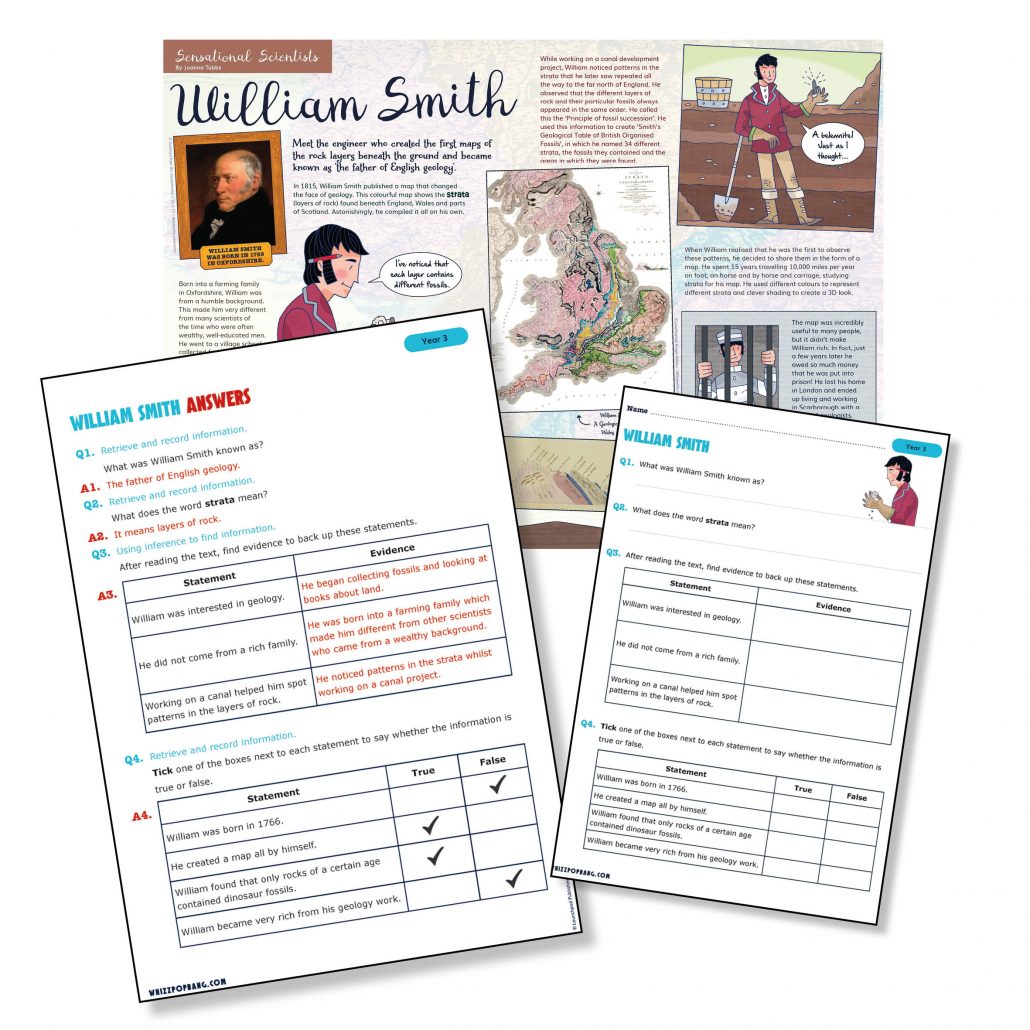
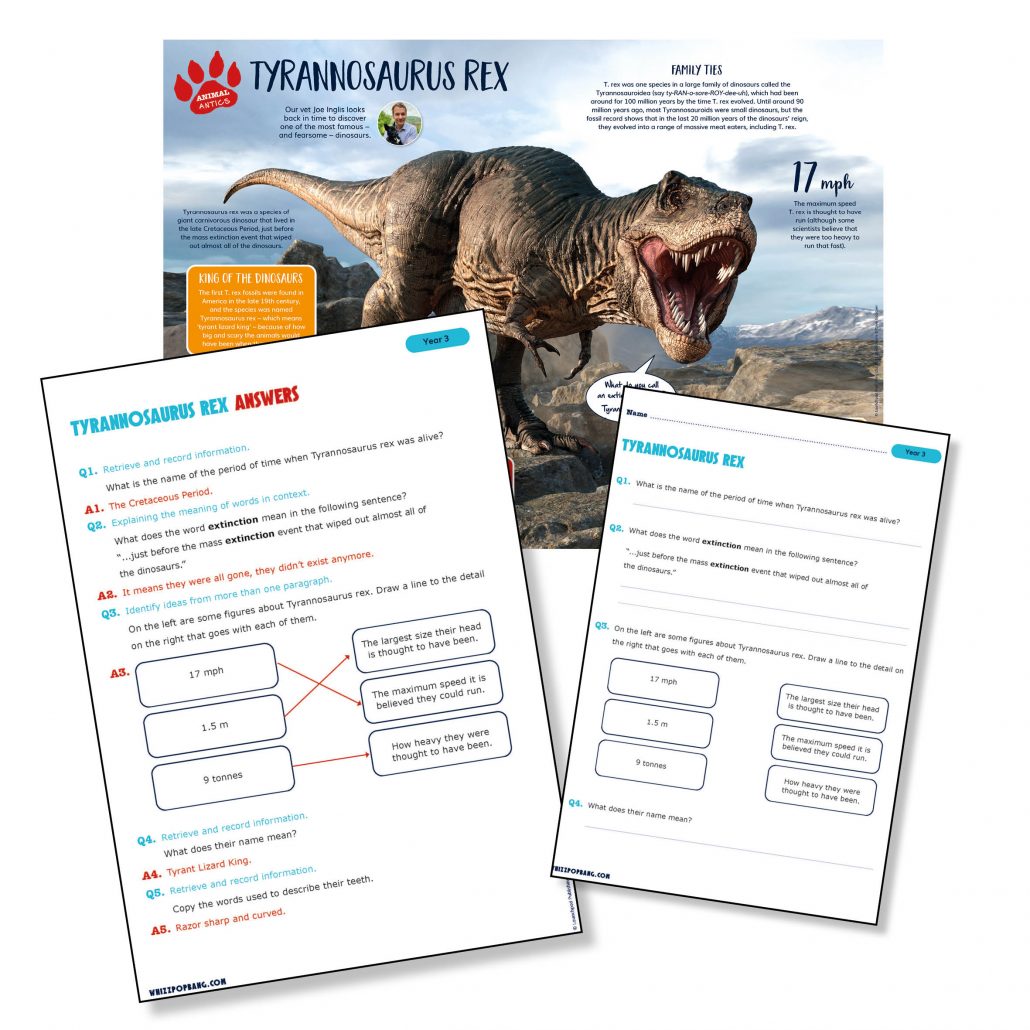
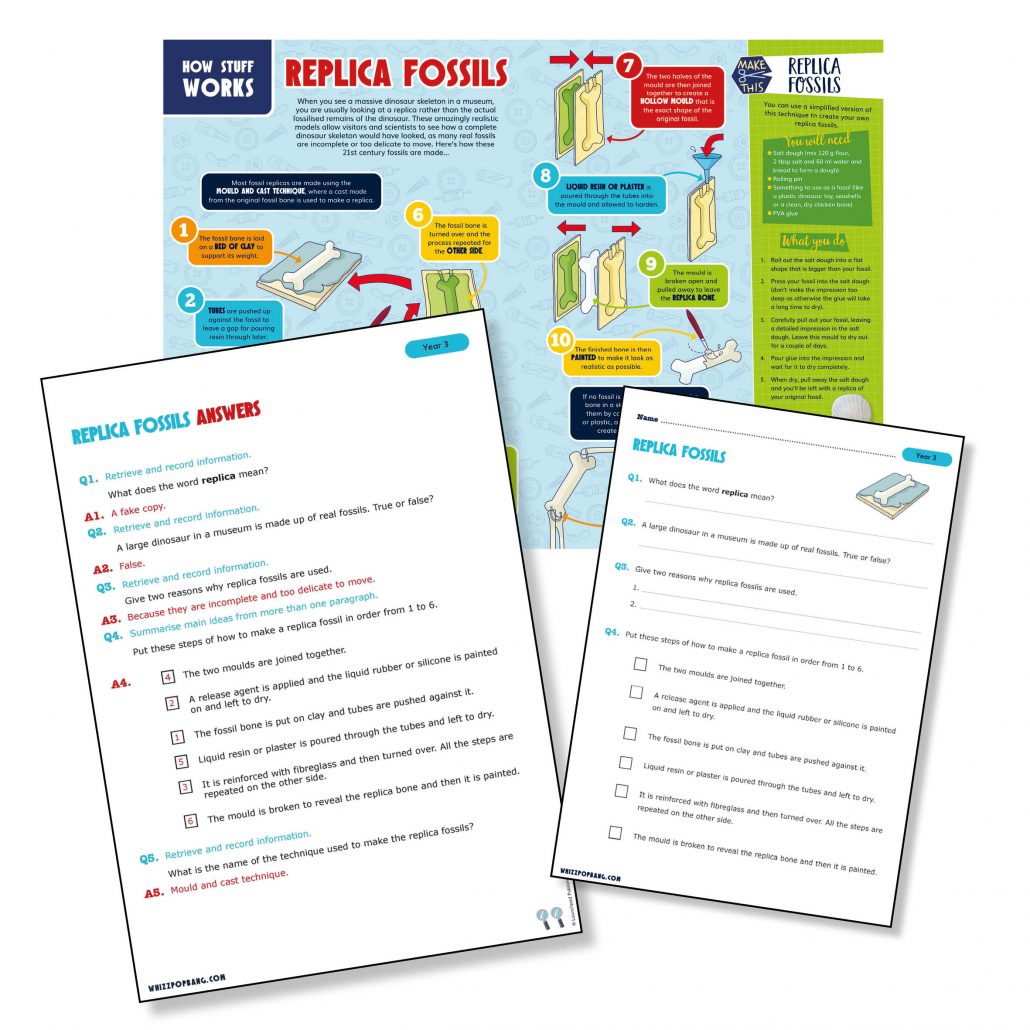
We also have a bank of spectacular science images that are perfect for promoting discussion. They feature a striking scientific image along with a couple of questions. As you click through the PowerPoint presentation, the answers to the questions will be revealed. Pupils should try to answer the questions as you go. The presentation added this month for the unit ‘Rocks’ is called ‘Asteroid crash!’. It only takes ten minutes, so it can slot into those awkward times in the school day, such as straight after lunch while you are waiting for everyone to come in.
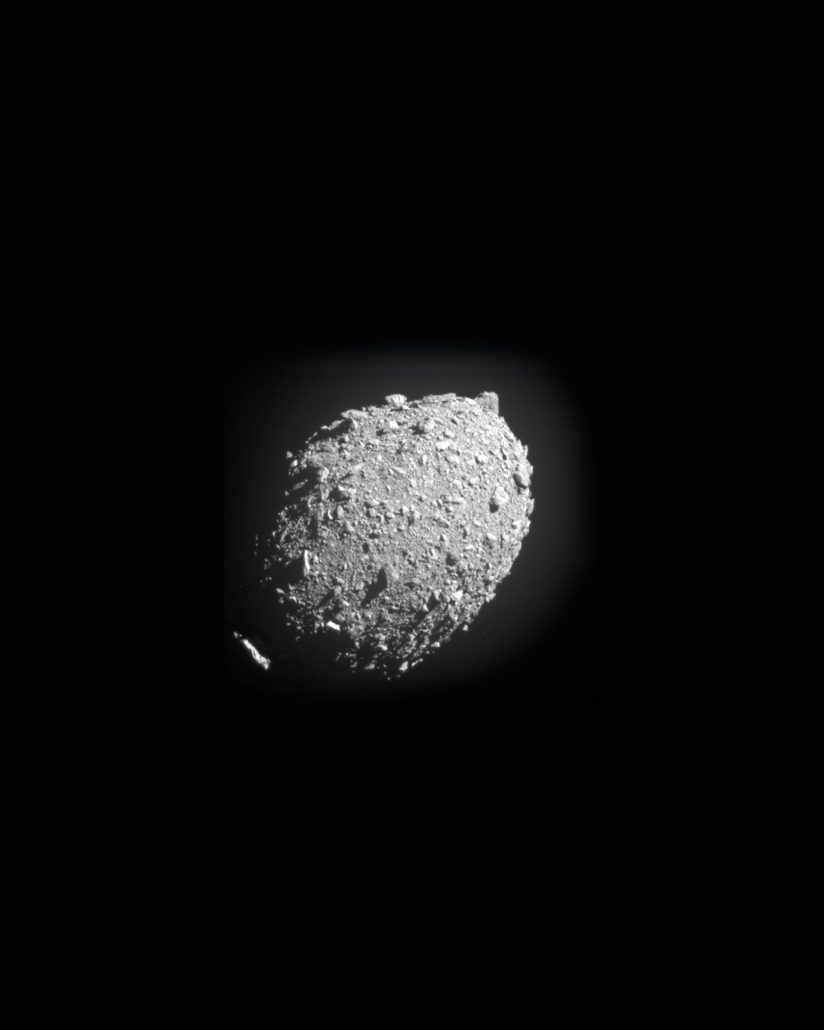
See all our discussion topics available for rocks here.
If you would like some FREE samples, sign up here for a magazine and an example lesson pack for years 2 to 6.
How much does it cost to gain access to all of the Whizz Pop Bang resources?
Prices start from as little as £197.99 per year for a copy of Whizz Pop Bang magazine through the post each month and whole-school access to our ever-growing library of downloadable teaching resources, with unlimited teacher logins.
We have an individual membership option so teachers and home educators can access all of our amazing downloadable resources for just £20 for the whole year.
“Whizz pop Bang has developed a refreshing look at science and its resources bring this subject to life” Class teacher Caroline Burton
Get ready to explore the fascinating world of volcanoes with our latest competition! We’re giving you the chance to win one of FOUR amazing Massive Erupting Volcano Kits from Thames and Kosmos!

This kit allows you to simulate the epic power of a volcano in your own home. With a sturdy frame that effortlessly slides together, you can build a huge volcano model that measures more than one foot tall. The kit includes hardening plaster-coated fabric strips to wrap around the frame, along with paint, fake boulders, and cardboard cutouts of dinosaurs and prehistoric plants to decorate your volcano.
When you’re ready for action, simply mix the included non-hazardous powders, dye, and water to create a chemical reaction that produces flowing red ooze, simulating the molten hot lava flows of a real volcanic eruption. Six packets of chemicals are included, allowing the volcano to be erupted multiple times. The kit also comes with a large, full-colour scientific poster of a volcano, as well as an instruction sheet that provides educational information about volcanoes, their formation, and the science behind their eruptions.
This is a fantastic educational experience for any budding geologist or scientist, and it’s an exciting opportunity to learn about the inner workings of the Earth and the different types of volcanoes that exist.
To enter the competition, simply answer the following question in the comments:
What term is used to describe a “sleeping” volcano?
a) Active
b) Dormant
c) Snoring
The competition closes at midnight on 30th April 2023. For full terms and conditions, please visit: https://www.whizzpopbang.com/terms-and-conditions/.
Good luck, and may the most volcanic-minded win!


🚀✨ Do you know a curious kid? 🔬🧪
We’re on the lookout for households with enthusiastic young scientists to join our team as brand ambassadors for our amazing kids’ science magazine – Whizz Pop Bang! 🌍🔍
Share your passion for discovery, inspire others, and ignite a love for learning in the next generation of explorers.
Being a brand ambassador for us will mean demonstrating your passion for Whizz Pop Bang through your social media accounts – send us an email at hello@whizzpopbang.com to find out more.
Want to know more about Whizz Pop Bang – the awesomely amazing science magazine for kids?


Sharpshooter insects catapult droplets of wee at high speeds. Researchers have found they do this using an anal stylus, which they nicknamed the ‘butt flicker’, which is a bit like the flippers on a pinball machine. You can watch them in action here:
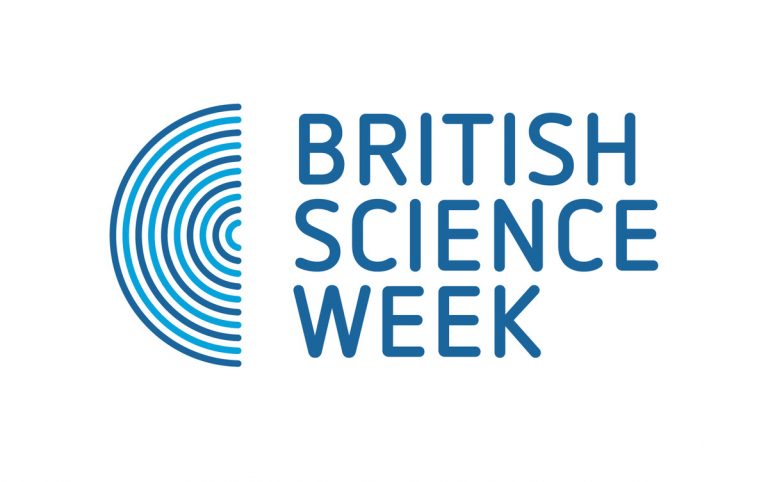
British Science Week is an exciting annual celebration of science, technology, engineering, and mathematics (STEM) in the UK. This year, it’s being celebrated between 10th – 19th March (2023) and there will be a wide range of activities, events, and opportunities for children and adults to explore and engage with science held all over the UK.
There will be lots of different events and activities to get involved in. Why not do some kitchen science at home, go to a science exhibition or science fair, listen to a science talk or get involved in a citizen science project? The aim of British Science Week is to inspire curiosity, interest and excitement in STEM and to help people learn about the latest scientific discoveries and advancements.
Whether your child is already interested in science or is just curious and keen to learn more, British Science Week is a wonderful way for them to explore science and discover the many exciting things that science has to offer.
Here are some tips to get stuck into science this British Science Week:
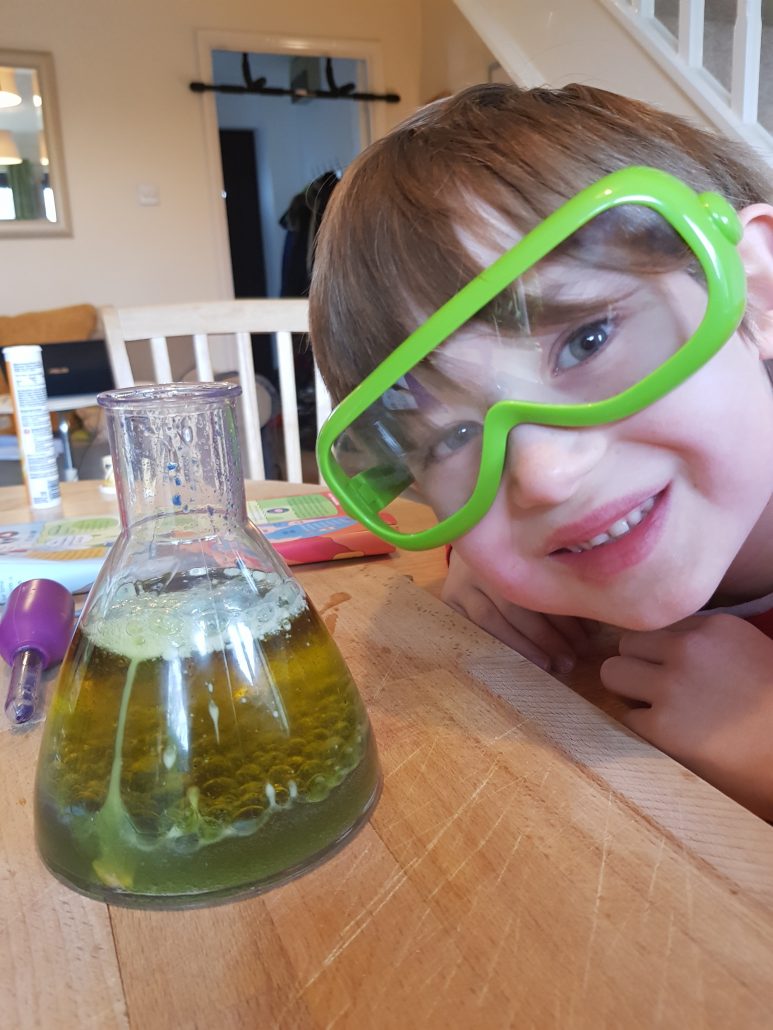
Home science experiments are a great way to introduce your children to the world of science. You don’t need a fancy lab to do this. Simple household items like vinegar, baking soda, food coloring, and balloons can be used to create some exciting experiments. If you’re already a Whizz Pop Bang subscriber, you’ll know just how much science fun is to be had with simple household items! Here are some free science experiments you can do at home, or why not stock up on some Whizz Pop Bang issues from the shop?
Science museums and exhibitions often have interactive exhibits that are sure to keep your children engaged, entertained and inspired about science. They will be able to see science in action and learn new things.
Science events and talks can be incredibly engaging and informative. There are so many exciting talks and events taking place during British Science Week, so why not take advantage of them? These events are an excellent way to explore science, meet scientists, and learn more about the fascinating world of science.
In the UK, you can visit: sciencelive.net to find an event near you!
Depending on where you are in the world there will most likely be a science museum, exhibition or talk you can visit.
The free activity packs for British Science Week 2023 are available to download now! There are different options for Early Years pack, Primary pack, Secondary pack and Community pack.
Each pack, created with the support of UK Research and Innovation and 3M, includes a wide range of fun, hands-on activities, and loads of useful information for planning your events for the Week.
Citizen science projects allow members of the public to contribute to scientific research. There are many projects that are suitable for children, such as counting birds in your garden or identifying plants and animals in your local area. You can find many citizen science projects online that you can participate in as a family.
You can search through loads of different citizen science projects here at Zooniverse.org.
British Science Week is having a poster designing competition all about this year’s topic – connections! Why not encourage your mini-scientist to get involved? Entries close on the 31st March and they could be in for a chance of winning one of their awesome prizes, from posters, play sets, tickets to events and books. This competition is open for children aged between 3 – 14 years old, to find out more click here.
Celebrating British Science Week is a great way to spark their curiosity and love for science. From home science experiments to immersive events, there are many ways to explore science together. We hope these tips have given you some inspiration for your science adventures during British Science Week 2023. Have fun exploring science with your children!
Fill your child with science wonder with a subscription to Whizz Pop Bang, the award-winning magazine for 6 to 12-year-olds. Watch their face light up with glee when their very own magazine zooms through the letterbox! Packed full of hands-on science awesomeness, it’s the gift that keeps of delighting, month after month.
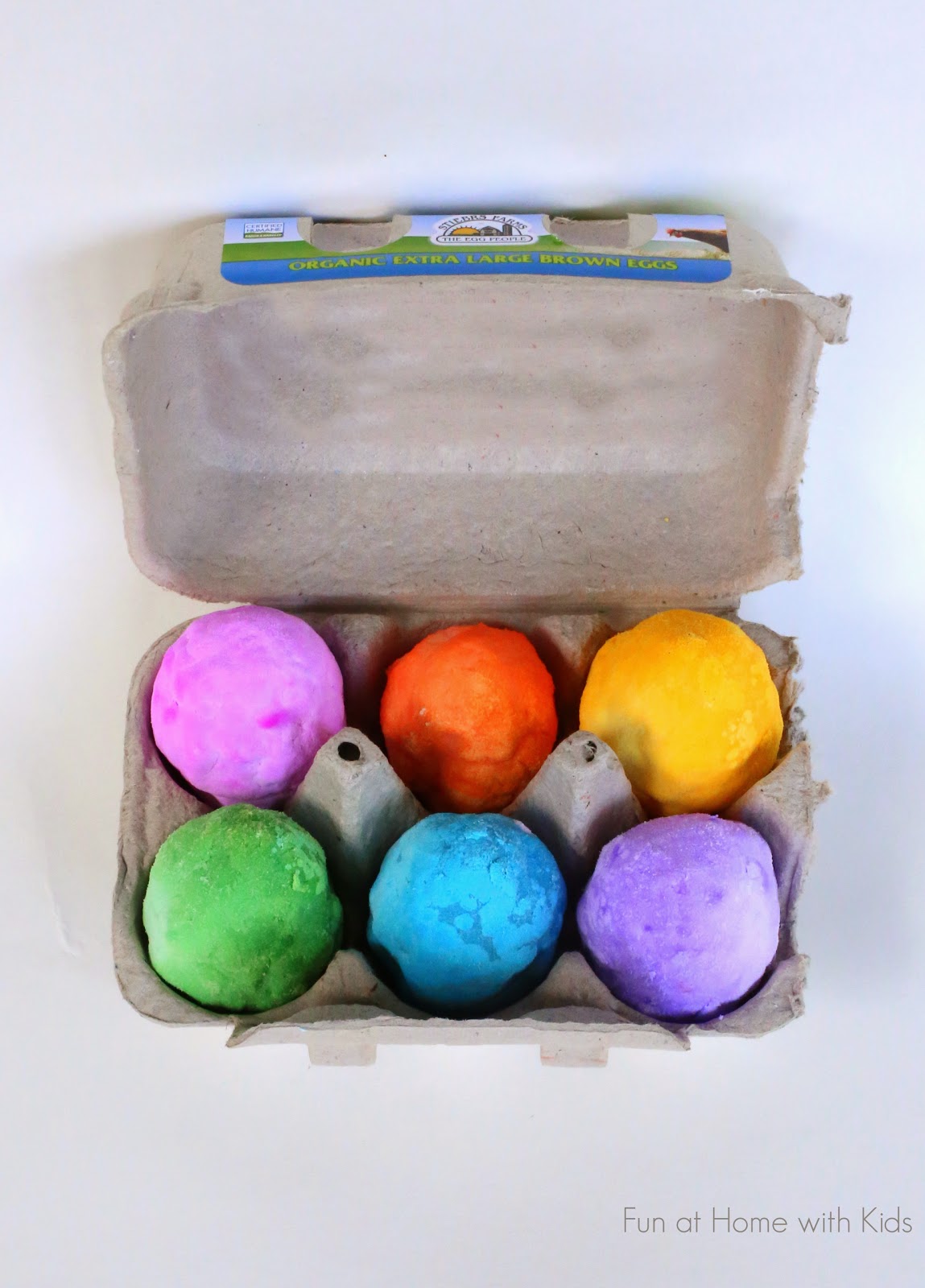
With Easter just around the corner, we’ve put on our thinking bonnets and come up with the best Easter science experiments, bouncing bunny crafts and fun egg activities to share with you. These simple, exciting science experiments are a brilliant way to keep young brains whirring all year round!
Round up the family, find some pens and paper and pop open a packet of chocolate eggs – it’s time to get quizz-ical with this Easter quiz! Suitable for children and adults alike, this quiz will get you wondering about the world’s largest eggs, rabbit anatomy, the science of chocolate and so much more.

This kitchen chemistry activity uses bicarbonate of soda (called baking soda on this site) and vinegar to create a fizzing reaction that is guaranteed to excite young scientists. Pop a small toy into an egg mould, fill with coloured water and a little bicarbonate of soda then put it in the freezer. Once frozen, use warm water and vinegar to set the toy free!
Head this way for the full instructions.
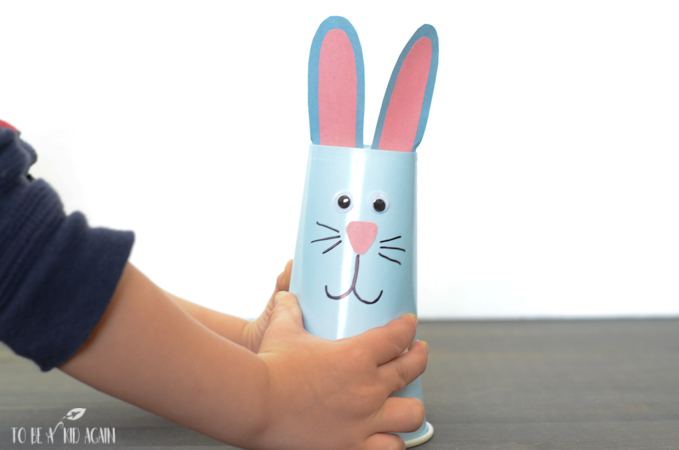
Turn two paper ups, an elastic band and some craft supplies into an Easter bunny that really bounces. Explore elasticity and forces with this fun Easter science activity!
Find out everything you need to know here.
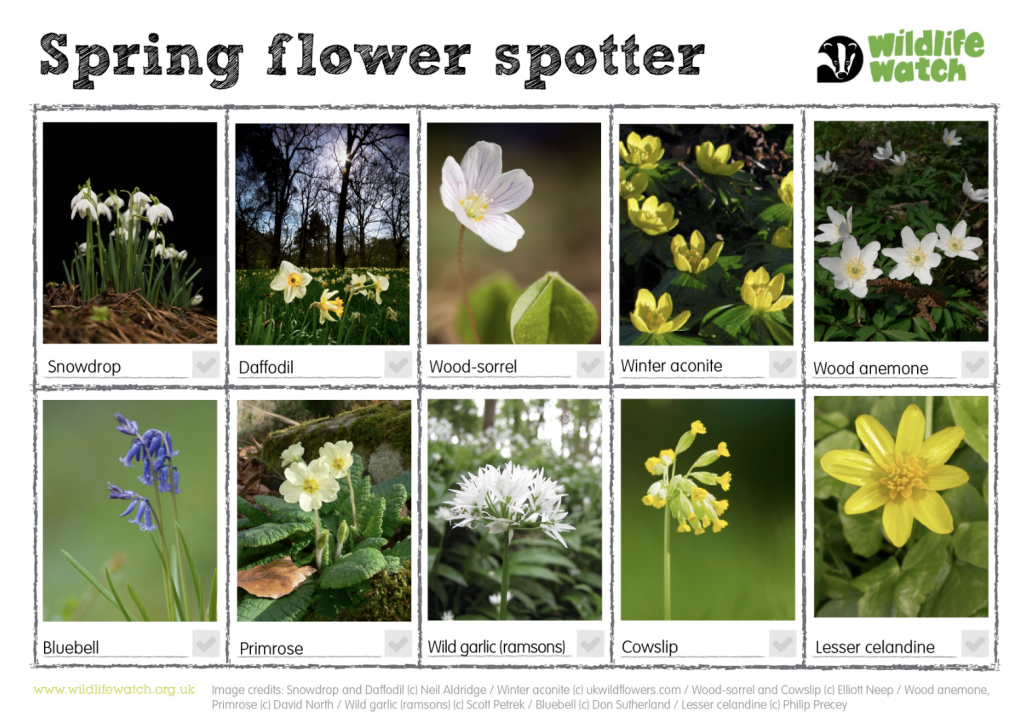
Do you know your celandine from your aconite? This printable treasure hunt is the perfect Easter holiday activity for all ages.
Find this nature quiz here.
Whizz Pop Bang’s Easter Eggs-periments booklet is packed with brilliant science activities, including…
🐣 Make dragon eggs
🐣 Grow egg geodes
🐣 Make a bunny bookmark
🐣 Puzzles
🐣 Crafts
🐣 Quiz questions
🐣 Jokes
And more! Best of all? It’s FREE!*
Buy anything from our online shop and we’ll send you a
FREE Easter Eggs-periments booklet!*To claim your free booklet, simply use the code EASTER23 when you purchase any product from the Whizz Pop Bang online shop.*
* Offer valid until midnight on 01.04.23 on Whizz Pop Bang products purchased using the coupon code EASTER23. Not valid in conjunction with any other offer. Orders will be dispatched by Royal Mail within two working days. We recommend ordering by 28.03.23 for delivery in time for Easter but cannot be responsible for any delays to delivery.
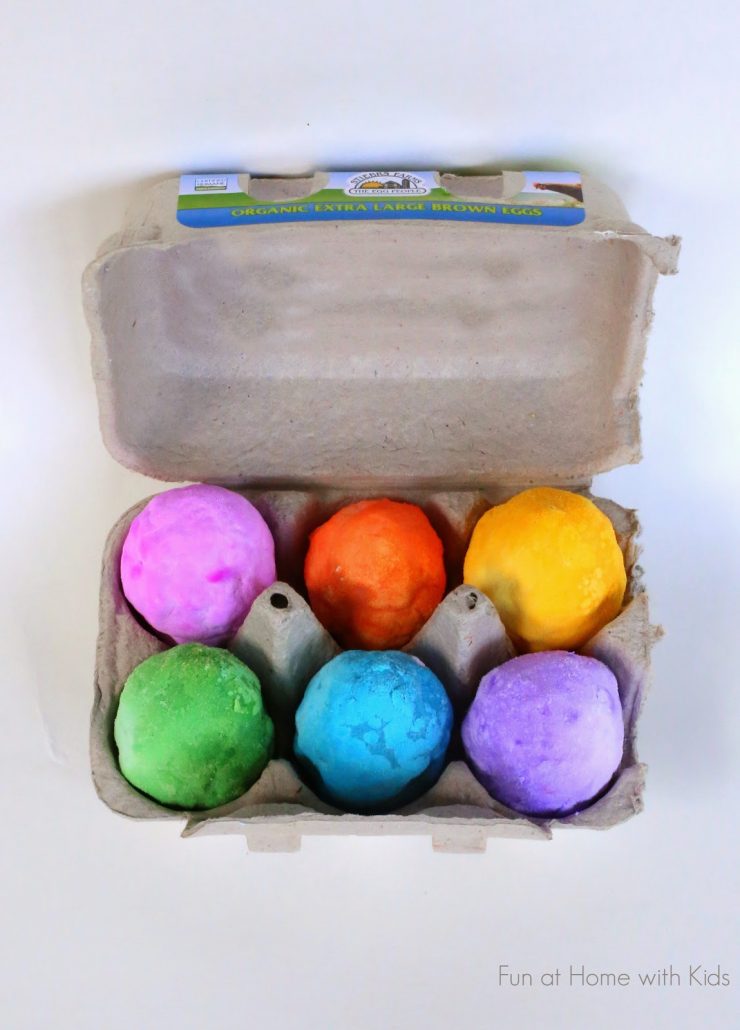
We can’t get enough of fizzy eggs at Easter! This blog post includes a brilliant foaming variation using washing up liquid.
Find out how to give it a try here.
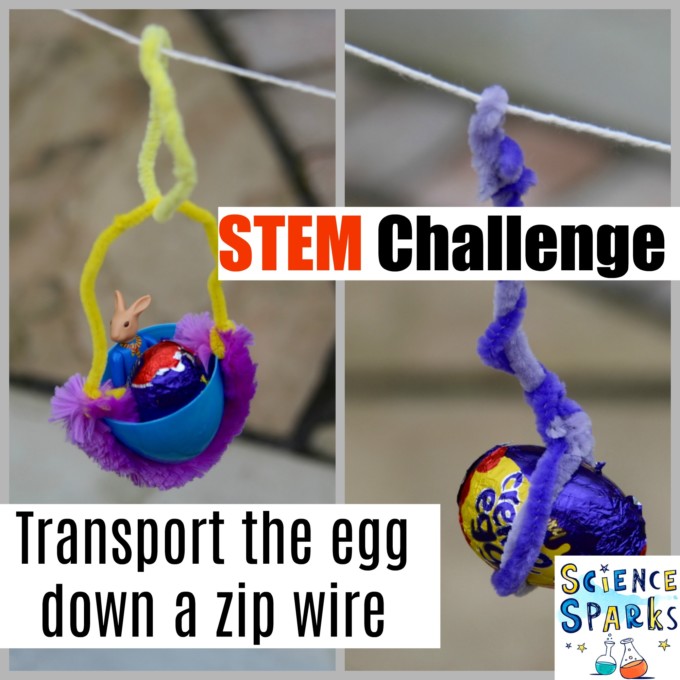
Our friends at Science Sparks challenge you to build a harness that can safely transport an egg (chocolate or chicken!) down a zip wire.
Are you up to the challenge?
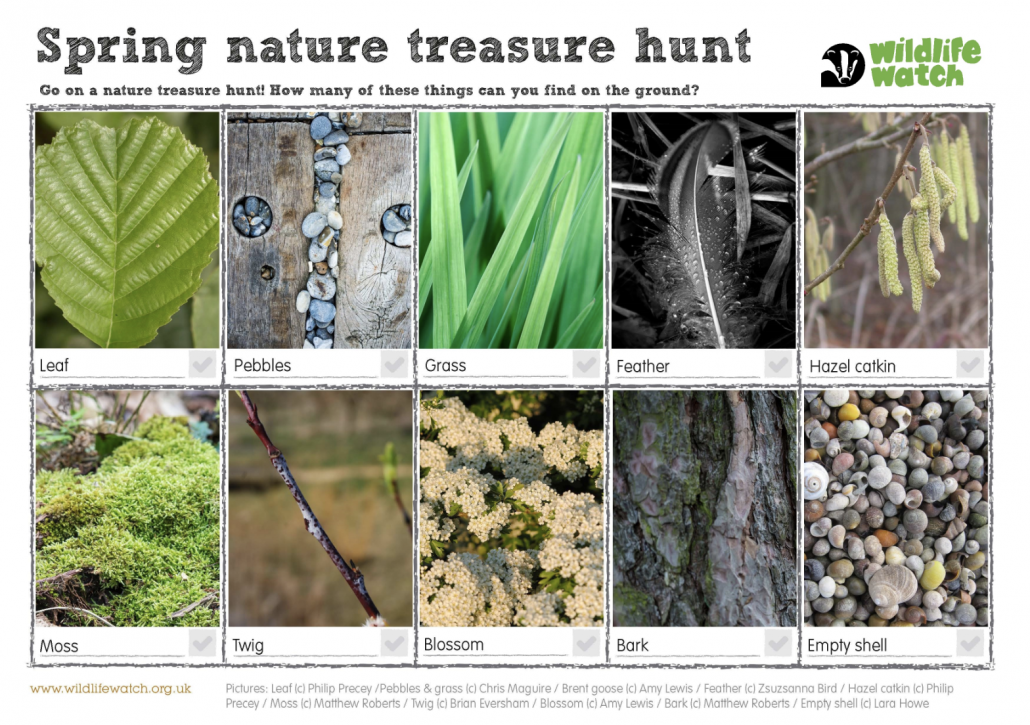
Transform a nature walk into a treasure hunt with another fab printable from Wildlife Watch.
Find this activity here.
Warmer days are on the way so it’s the ideal time to plant some seeds, start growing some food and see some amazing science in action!
Make like a rabbit and experiment with carrots! Investigate osmosis from your kitchen table using two simple ingredients: carrots and salt.
Want to explain osmosis to kids? Here goes…
Water moves from an area of low salt to an area of high salt – balancing the water on both sides.
In this experiment, when a carrot is placed in very salty water, it will be less salty than the area around it. This causes the water in the carrot to move out of the carrot and into the cup. The result is that the carrot becomes limp and tastes saltier than before.
PS We agree with the end of this video – don’t eat the salty carrots!